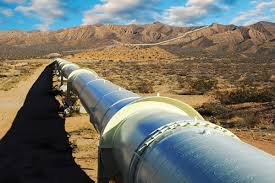ISLAMABAD: Pakistan is regularly contributing its committed share to carry out the multi-billion dollar Turkmenistan-Afghanistan-Pakistan-India (TAPI) gas pipeline project activities, which made significant progress during the current year. “The groundbreaking for Pakistan-section of the TAPI pipeline is being planned that is expected to be held soon,” a senior official privy to the petroleum sector developments told APP.
He said Turkmenistan had already completed the construction work on its section, while the Afghanistan also performed groundbreaking of the project last year. The official said, in the recent past Pakistan had signed the Host Government Agreement (HGA) with Turkmenistan and would lay gas pipeline on its section from Chaman to Multan via Quetta and Dera Ismail Khan.
Under the project, he said, a 56-inch diameter 1,680 kilometers pipeline, having capacity to flow 3.2 billion cubic feet per day (bcfd) gas, would be laid from Turkmenistan through Afghanistan and Pakistan up to Pak-India border by the year 2020.
As per the TAPI agreement, Pakistan and India will be provided 1.325 bcfd (billion cubic feet per day) gas each and Afghanistan will be getting the share of 0.5 bcfd gas. He said the Petroleum Division was actively pursuing the international gas pipeline projects to meet the country’s ever-growing energy needs as its existing hydrocarbon reserves were depleting.
Quoting a recent study about fast depletion of existing hydrocarbon reservoirs in the country, he feared that the deposits would further deplete by 60 percent by the year 2027. The official said it was a reality that oil and gas exploration companies operating in potential areas of the country could not made any major discovery since long, so the instant available remedies were to execute trans-country pipeline projects and increase import Liquefied Natural Gas (LNG) encouraging private sector.
The official underlined the need for accelerating exploration activities in potential areas on war-footing, saying, “The country’s energy demand is increasing and local production is decreasing. So, our reliance on imported petroleum products is escalating with each passing day.”




